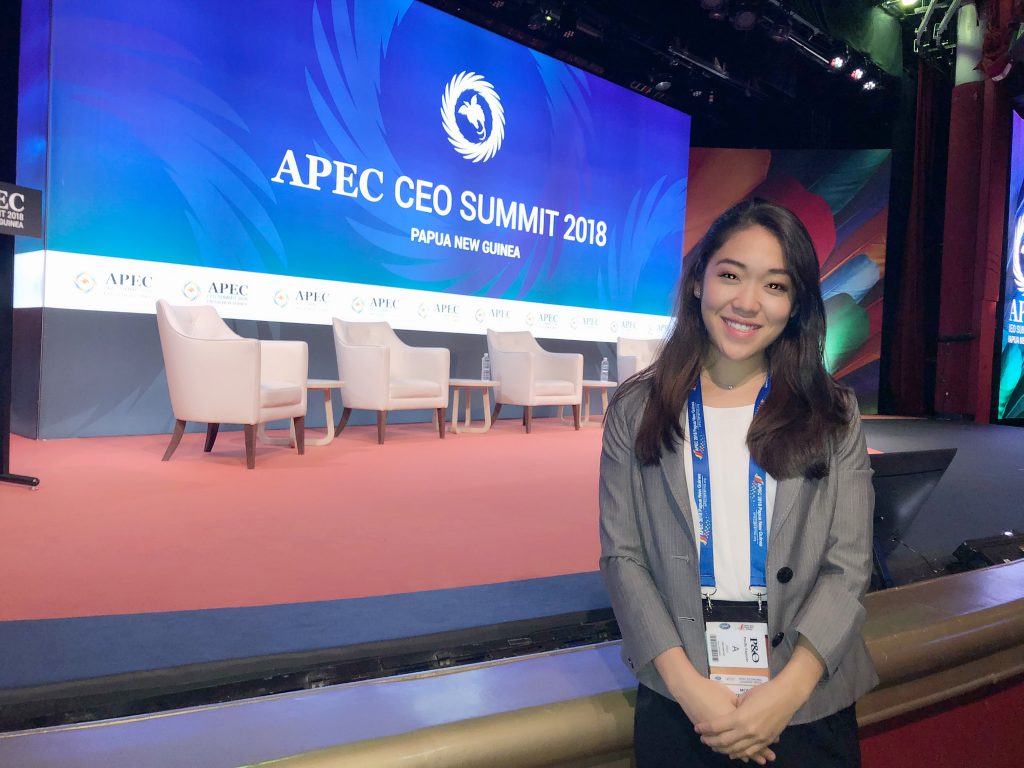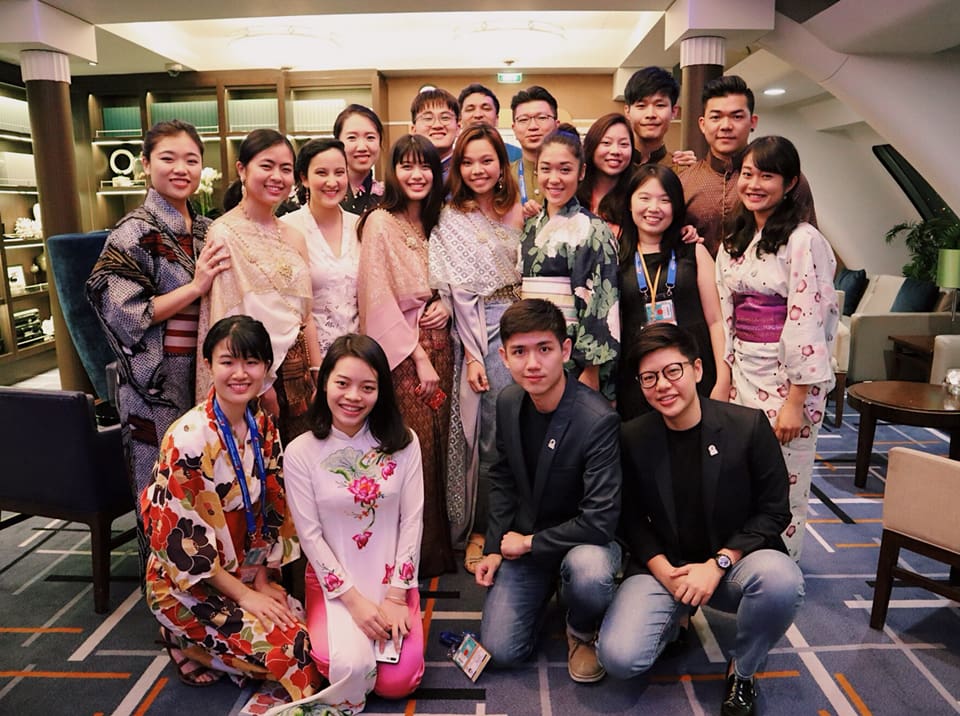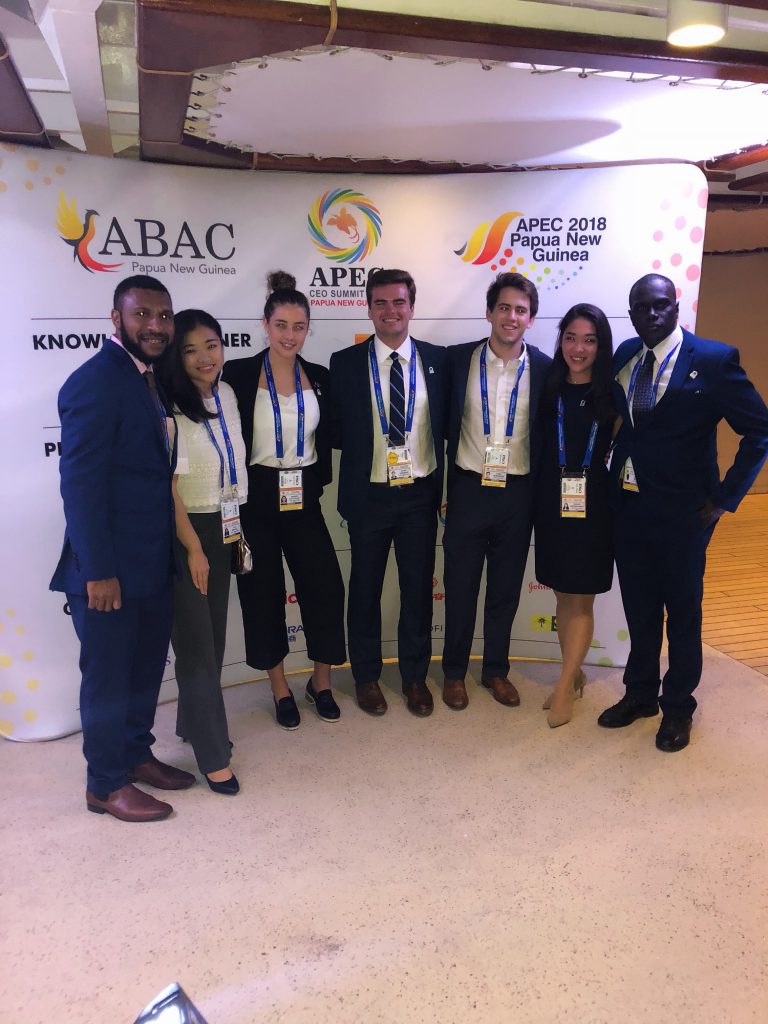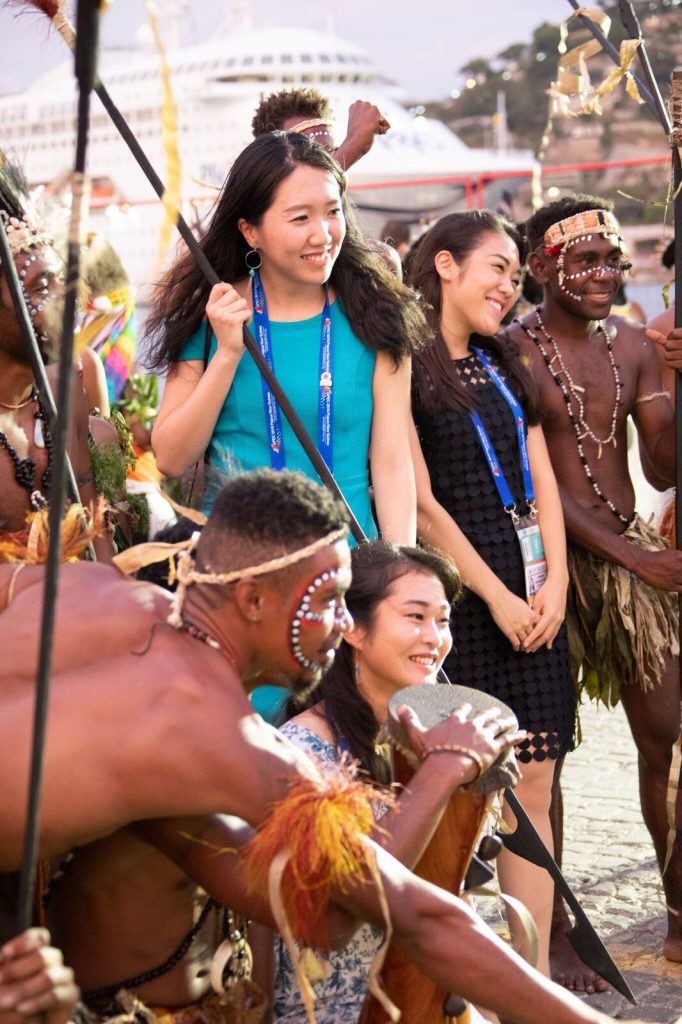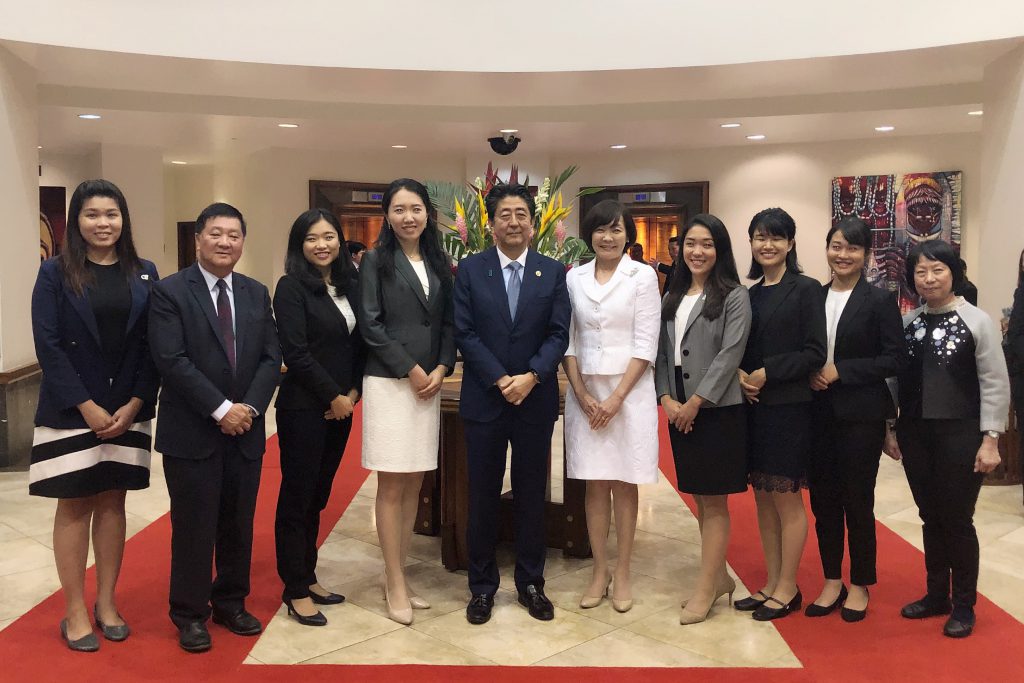“Until I met you, I thought of Japanese people as my family’s enemy. You have changed my perspective on Japanese people” – these short, but deep words from a Papua New Guinean whose family members were killed by a Japanese soldier during World War II moved me. This encounter is a prime example of how a personal encounter could be a powerful tool to change the way people’s opinions. Personal connection is essential during the process of policy-making as well because policy is about relationships, partnerships, and collaborations between community members and community leaders. Participating in the APEC Voices of the Future From (APEC VOF) provided the opportunity to have discussions with youth delegates from other economies, meet with APEC Business Advisory Council (ABAC) members, attend the APEC CEO summit, and witness how international policies are created. Meeting people with different backgrounds and perspectives were eye-opening, and memorable experience. However, talking with the Papua New Guineans also reminded me of an important lesson: no one should be left behind in the decision-making process for the improvement of the country. The only way to create an inclusive policy that would benefit everyone is through interactions and discussions with people.
Open Discussions Between the Youths Will Change the World for the Better
As a member of the Japanese youth delegate, I attended APEC VOF, hosted for the first time in Papua New Guinea. This year’s theme was “harnessing inclusive opportunities, embracing the digital future”. 73 youth delegates from 15 economies exchanged ideas to build a new vision for APEC. Our open-mindedness, diversity, and inclusiveness sparked discussions, both official and unofficial, which became the foundation for the youth declaration. What made the whole program even more exciting was that we all shared the same enthusiasm and passion to make a positive change for our economies. During our discussion sessions, each economy had an opportunity to present the current issues in their home economies. Japan was the only country that touched on mental health issues, which many youth delegates from other economies told us that they resonated with. Having a mental illness is highly stigmatized and trivialized in Asian cultures because it is associated with weakness and shame. While some countries are taking progressive approaches to address mental health issues, there is silence, particularly in Asian nations. As for the case of Japan, many of those who suffer from mental disorders are hospitalized for decades at a time, and even when the symptoms improve, it is difficult for patients to go back to the community because of the discrimination, not only from the society but also from the family. Throughout the week, I had many encounters with other youth delegates, and we all agreed on the importance of education and providing platforms for the youths to openly discuss mental illness if we want to change the society to be more accepting. The youth have the ability to become a powerful catalyst to change the world. Open discussions with the youth delegates from various viewpoints have sparked innovative ideas before. I am confident that the collaboration of the youth will be a springboard and incubation platform that will contribute to the betterment of the world as a whole to promote both economic growth and social inclusion.
Business and Political Leaders Want to Hear Our Voices
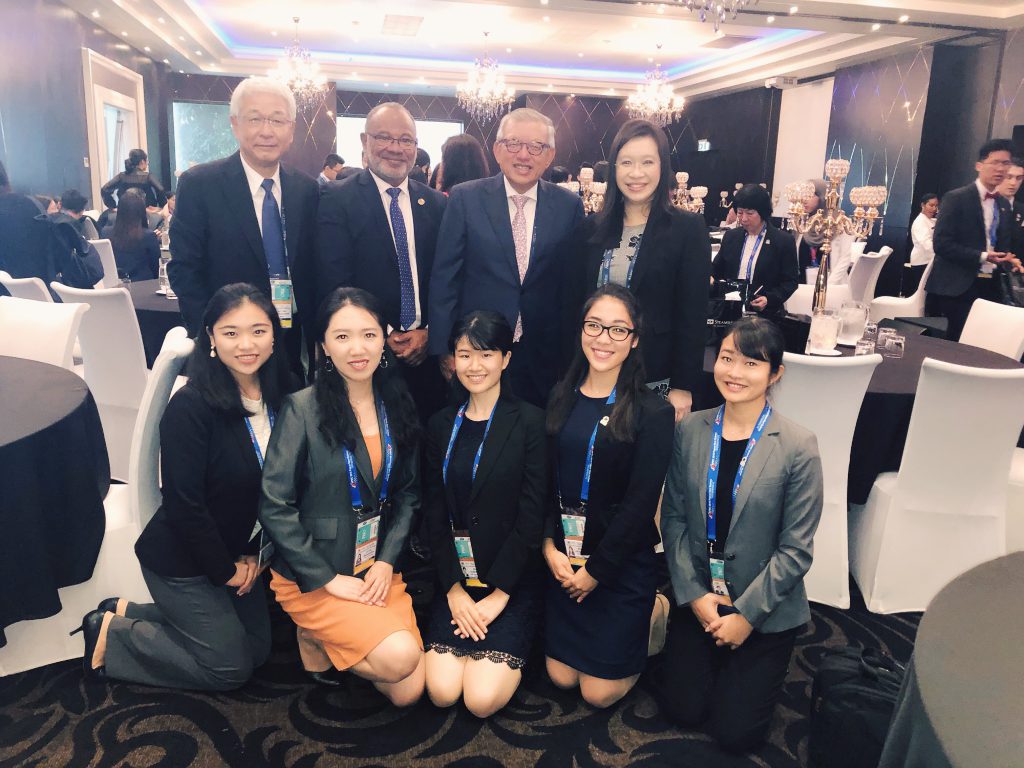
Just as valuable as engaging with peers from 14 other economies was the opportunity to meet with some of the world’s most powerful political and business leaders. It was a great honor to be able to attend the APEC CEO summit to witness world leaders have discussions on free trade and sustainable growth in the digital economy. As I sat in the venue, there was an indescribable tension; China’s President Xi Jinping and the United States Vice President Mike Pence spoke back to back, addressing the underlined issues on global trade from their perspectives. In both of their speeches, they referenced the escalating trade war between the United States and China. APEC economies make up about 60% of global GDP and the 19 economies were in the cross-fires between China and the United States. Hearing their speeches reaffirmed to me the difficulties in maintaining international relationships because of the growing geopolitical rivalry.
It was a surreal experience to be sharing the same table, have the opportunity to talk to ABAC members, who create and promote APEC policies: Mr. Motomu Takahashi, Counselor of Mitsui & Co., Ltd.; Mr. Ho Meng Kit, the Chief Executive Officer of the Singapore Business Federation (SBF); Mr. David Manoa Toua, President of PNG Business Council. Additionally, the opportunity to meet our Prime Minister Abe and have a very frank and open discussion with our First Lady Akie Abe on women’s empowerment was a special and humbling experience. One of the memorable topics discussed was the importance of taking initiatives to achieve gender equality in Japan. She is a strong advocate for women’s empowerment, and it was great to hear about her initiatives since my research topic is on the inclusion of women in society.
In many of these encounters with world leaders, I took the opportunity to emphasize the importance of two topics. The first topic was on fostering innovative technology’s growth in Japan. Mutual commitment and investment from both employers and policy-makers have to be made to fully grasp the opportunity presented by the new technologies. This means policymakers must increase their efforts to boost innovation and exploitation of innovative technologies such as blockchain and artificial intelligence. Employers must ensure future employees have the right skills so that their employees will be ready to face this new digital era. I am currently aiming to gain a deeper understanding of blockchain because I strongly believe blockchain will improve services in a wide range of industries and sectors. The world leaders shared the same opinion on this matter. There is no doubt that the collaborative efforts from both policymakers and employers will help Japan to be the leading light in this digital era.
The second topic was women’s empowerment. Japan was the only country that selected all women as youth delegates to participate in the program. Many business and political leaders asked us, “Why are all Japanese youth delegates women?”. But as they got to know us more and learned how passionate we were to change society, they mentioned that they were excited to see more women representing Japan because there is a low women participation rate in politics and businesses. It was inspiring to directly hear from many leaders across the APEC community to say women are the future of our economy. It gave me the motivation to continue to be a part of this active change to create a community where more young people and females can make a difference not only in Japan but also around the globe.
One of the biggest takeaways I observed from participating in a week-long program is that business and political leaders care about youth participation and hear our voices. The issue is, however, that although the leaders are interested in hearing our voices, they do not have the tools to reach out to the youth. This made me think about how I can aid in bridging the gap. We, as youths, must actively reach out to decision-makers to create positive changes in our economies.
To all the youths who want to make a change in our society – you’re not alone. APEC VOF is great proof of that. Creating a movement of youth to take action will bridge the gap between the youth and powerful decision-makers and successfully enact change for the better. The youth declaration created by the members of APEC VOF is only the beginning of this change. I hope every member, including myself, will continue to strive to achieve these ambitious yet achievable action plans for social problems across Asia-Pacific regions, promoting sustainable and inclusive growth utilizing digital technology as youths.
Thank you
Attending the APEC Voices of the Future program wouldn’t have been possible without the help of GraSSP for sponsoring and providing me with an extremely rewarding experience in Papua New Guinea. I also would like to thank the Ministry of Foreign Affairs and Support Council for ABAC-JAPAN for arranging to meet with us to learn about opportunities and challenges surrounding APEC economies. Lastly, I would like to say my sincere thank you to Papua New Guinea, the APEC working committee, and the NYAA Council for broadening my horizon. I look forward to maintaining the friendships I created and supporting this amazing program I had the privilege to be part of.



